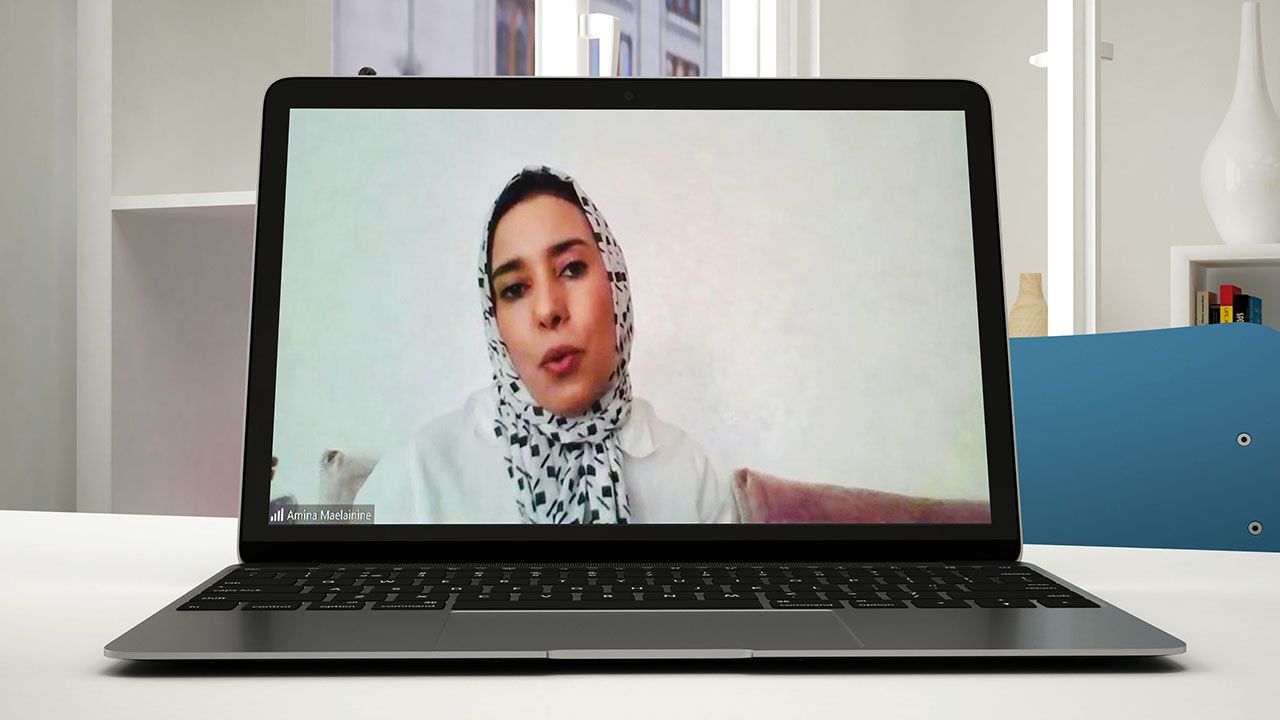
On 22 July, 2020, members of the House of Deputies of Lebanon, of the House of Representatives of the Kingdom of Morocco and of the Assembly of the Representatives of the People of Tunisia met virtually to discuss and exchange ideas on the fight against impunity in their respective countries and throughout the Middle-East and North Africa (MENA) region. This meeting was the 8th meeting of its kind organised by PGA since 2005.
The meeting opened with an introduction from Mr. Hicham Cherkaoui, Chairman of the Moroccan Center for Peace and Law and North-African Focal-Point of the African Network for International Criminal Justice, who gave a brief overview of the situation in the region. Most notably, he underlined the lack of political will in most countries, which explains why only Jordan, Palestine and Tunisia have ratified the Rome Statute of the International Criminal Court (ICC) and countries have not yet fully domesticated it by criminalising genocide, crimes against humanity, war crimes and the crime of aggression.
This description of the regional landscape of the fight against impunity was followed by a presentation of the Tunisian experience by Hon. Mehrezia Labidi, former first Deputy Speaker of the National Constitutional Assembly of Tunisia and currently member of the Liberties and Foreign Affairs Committee of the Assembly of the Representatives of the People. She explained that, although the “transitional justice” process that started with the Truth and Dignity Commission had many positive impacts and allowed the victims to be heard and have their sufferings acknowledged, much remains to be done: despite the very exhaustive work done by the Commission, very few alleged perpetrators have faced justice and victims still await reparations. Hon. Labidi denounced the ambivalent approach by the former Government of Tunisia to the fight against impunity, which remains an essential ingredient for the successful transition of the Republic from the oppressive regimes of the past and the current democratic system.
Finally, Ms. Antônia Pereira de Sousa, External Relations and Cooperation Officer at the Registry of the ICC, made a survey of the ongoing cases and situations before the ICC, starting with the most recent voluntary surrender to the ICC by an alleged Janjaweed militia leader who is accused of 53 charges of crimes against humanity and war crimes in Darfur, Sudan. The ICC representative highlighted that the Court has produced 28 cases in respect of 13 situations of atrocity-crimes falling under the Rome Statute’s jurisdiction, while also noting that there are 9 situations under preliminary investigations. Ms. Pereira de Sousa stressed the importance of promoting new ratifications of the Rome Statute towards its universality as she described how the limited MENA membership is negatively impacting the extent to which the Court can exercise jurisdiction and is restricting the contribution of legal experts from the region as well as the legal diversity of the Rome Statute system, given that Judges may be elected only amongst nationals of States Parties.
These presentations then allowed the parliamentarians to exchange and discuss their respective countries’ perspectives in the fight against impunity. Hon. Amina Maelainine, member of the Justice, Legislation and Human Rights Committee of the House of Representatives of the Kingdom of Morocco and member of PGA’s Executive Committee, explained how her country had opted to implement the Rome Statute before even ratifying it. This process is underway through the discussion in the relevant committee of a new Criminal Code, which would incorporate in Moroccan criminal law the offences of genocide, crimes against humanity and war crimes. A similar process should soon be engaged in Tunisia, where a draft text for comprehensive implementing legislation (including provisions on cooperation with the ICC) in Arabic and French, prepared by PGA’s Secretariat, has been shared with concerned parliamentarians. Hon. Maelainine reaffirmed her commitment towards promoting Morocco’s accession to the Rome Statute as a guarantee of prevention.
Even those of us who are blessed to live in a stable country where no atrocity take place must do our part for the fight against impunity, for those who are now or will be victims of such crimes around the world. As parliamentarians, we do not only legislate for the present but also for future generations. Hon. Amina Maelainine, member of the Justice, Legislation and Human Rights Committee of the House of Representatives of the Kingdom of Morocco and member of PGA’s Executive Committee
Hon. Georges Okais, member of the Justice Committee of the House of Deputies of Lebanon and former judge, commended his Tunisian and Moroccan colleagues on the success achieved and the work underway with regards to the fight against impunity. He regretted that Lebanon has yet to ratify or implement the Rome Statute, despite the benefits these steps could have for the rule of law and accountability. Hon. Okais encouraged the attendees to foster more discussions between MPs in the region to generate and increase political will. Additionally, for the case of Lebanon, technical assistance, which includes a holistic approach to the fight against impunity, would be welcomed by legislators.
All parliamentarians present agreed to keep working and collaborating on improving the legal framework for the fight against impunity in their respective countries and throughout the region.




